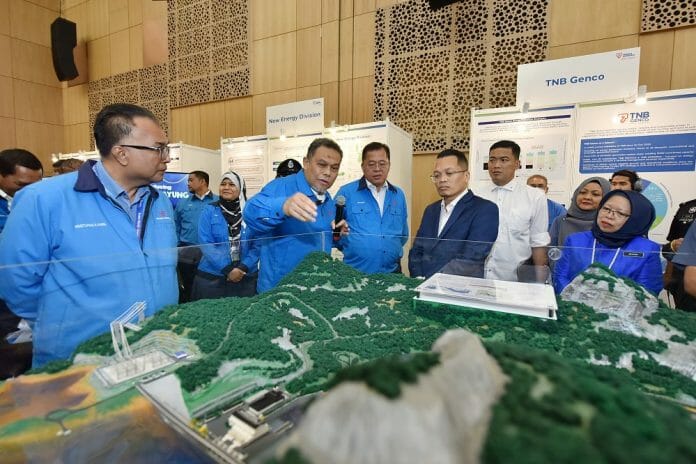Tenaga Nasional Berhad (TNB) is leading the implementation of the energy transition with the aspiration of net zero carbon emissions by 2050, in line with the country’s agenda to deal with climate change, said the Minister of Natural Resources, Environment and Climate Change (NRECC), Nik Nazmi Nik Ahmad.
“I am very interested in the TNB Energy Transition Plan, to achieve net zero carbon emissions by 2050, in line with the government’s desire to continue supplying electricity to the people towards a more prosperous and sustainable life, with a commitment to meet the criteria of the Environment , Social & Governance (ESG).”
Praising TNB’s efforts to switch to solar energy, hydro and generation technology using hydrogen and ammonia to reduce carbon emissions, he said it was a good start to address the issue of climate change and achieve a net zero emission cycle economy.
“The government will provide appropriate support to form policies to promote the development of the country’s energy transition ecosystem,” he said addressing TNB employees in conjunction with his first working visit to TNB Headquarters in Bangsar on Tuesday, 10 January 2023.
Strictly speaking, NRECC is committed to increasing electricity generation from Renewable Energy sources (Renewable Energy) through the Electricity Supply Generation Development Plan 2021-2039.
“Taking into account the importance of balancing energy demand and reducing carbon emissions, NRECC will also continue to drive efficiency and energy saving initiatives through the National Energy Efficiency Action Plan,” he said.
He received a briefing from the President and CEO of TNB, Dato’ Indera Ir. Baharin Din explained TNB’s important role in ensuring safe, reliable and quality electricity supply to more than 9.66 million customers in Peninsular Malaysia.
“The Ministry realizes that most of TNB’s profits are used to develop the Company’s main assets to further strengthen the country’s electricity supply system for the well-being of the general public,” commented Nik Nazmi.
Acknowledging that TNB’s development is always close to his heart, he added that electricity infrastructure investment is very important for TNB’s commitment as a leader in the country’s energy transition.
“After privatization, TNB became one of the most successful GLCs not only in terms of electricity supply services, but also dividends to GLICs. This contribution is very large and it can be enjoyed by the people,” said Nik Nazmi.
Thus, he said, NRECC greatly appreciates the role and efforts of TNB since the days of the National Electricity Board or Lembaga Eletrik Negara (NEB/LLN) more than 73 years ago in fulfilling the main responsibility of ensuring the stability of the country’s electricity supply in addition to carrying out social responsibilities and economic development.
He also visited the operation room of the National Load Dispatch Center (NLDC). Also present was the Chief Executive Officer of the Energy Commission (ST), Dato’ Ir. Abdul Razib Dawood; NRECC Deputy Secretary-General (Energy), Dato’ Mohamad Razif Abd Mubin, NRECC Deputy Secretary-General (Environment), Noor Afifah Abdul Razak and TNB’s top management.
Baharin said, as a company sensitive to the issue of climate change, TNB took a bold step and announced the aspirations of the 2050 Sustainability Direction and its commitment in leading Malaysia’s energy transition journey.
“In addition to the net zero carbon emissions target from the generation sector, measures to accelerate the energy transition drive include expanding the Renewable Energy (Renewable Energy) market, strengthening the grid and developing the Electric Vehicle (EV) ecosystem.
“All these steps contribute to the well-being of nature in dealing with climate change. It is the transformation of electricity generation and the drive of new growth sectors related to energy transition including low carbon mobility, energy storage and new energy such as hydrogen,” he said.
In moving towards net zero carbon emissions by 2050, he said, TNB is committed to achieving the 8,300MW TBB generation target in 2025, followed by a 35% reduction in carbon emission intensity and 50% of its coal generation capacity by 2035.









